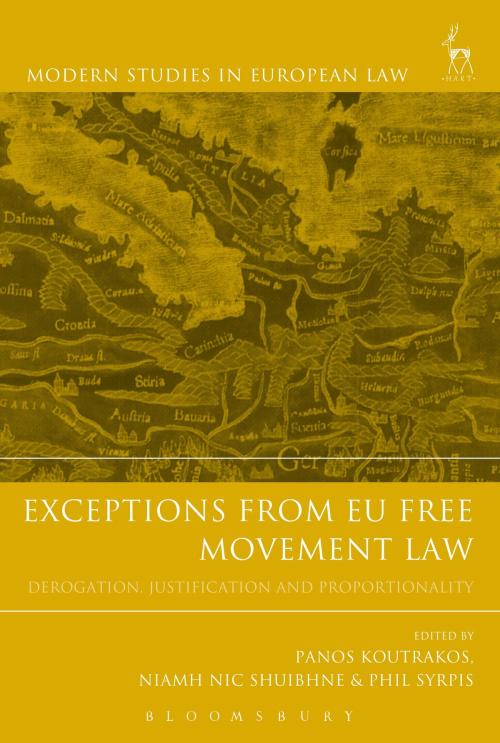Exceptions from EU Free Movement Law
Derogation, Justification and Proportionality
Nonfiction, Reference & Language, Law, Commercial, International| Author: | ISBN: | 9781509900350 | |
| Publisher: | Bloomsbury Publishing | Publication: | December 15, 2016 |
| Imprint: | Hart Publishing | Language: | English |
| Author: | |
| ISBN: | 9781509900350 |
| Publisher: | Bloomsbury Publishing |
| Publication: | December 15, 2016 |
| Imprint: | Hart Publishing |
| Language: | English |
This collection of essays brings together contributions from judges, legal scholars and practitioners in order to provide a comprehensive assessment of the law and practice of exceptions from the principle of free movement.
It aims:
– to conceptualise how justification arguments relating to exceptions to free movement operate in the case law of the Court of Justice of the European Union and national courts;
– to develop a comprehensive and original account of empirical problems on the application of proportionality;
– to explore the legal and policy issues which shape the interactions between the EU and national authorities, including national courts, in the context of the efforts made by Member States to protect national differences.
The book analyses economic, social, cultural, political, environmental and consumer protection justifications. These are examined in the light of the rebalancing of the EU constitutional order introduced by the Lisbon Treaty and the implications of the financial crisis in the Union.
This collection of essays brings together contributions from judges, legal scholars and practitioners in order to provide a comprehensive assessment of the law and practice of exceptions from the principle of free movement.
It aims:
– to conceptualise how justification arguments relating to exceptions to free movement operate in the case law of the Court of Justice of the European Union and national courts;
– to develop a comprehensive and original account of empirical problems on the application of proportionality;
– to explore the legal and policy issues which shape the interactions between the EU and national authorities, including national courts, in the context of the efforts made by Member States to protect national differences.
The book analyses economic, social, cultural, political, environmental and consumer protection justifications. These are examined in the light of the rebalancing of the EU constitutional order introduced by the Lisbon Treaty and the implications of the financial crisis in the Union.















